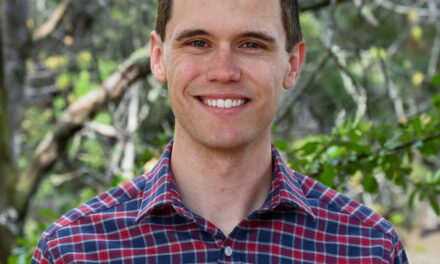
Despite all of the critical acclaim the French-Canadian filmmaker Dennis Villeneuve has accrued over the years, his name often goes unrecognized, and his excellent 2014 psychological thriller, Enemy, is still relatively unknown. Villeneuve was determined to make Enemy following the success of his 2010 Oscar-nominated foreign language film, Incendies, which brought him worldwide attention and paved the way for an impressive filmography featuring two outstanding crime dramas – Sicario and Prisoners – and three highly acclaimed science fiction films – Arrival, Blade Runner 2049 and, most recently, Dune.
Enemy stars Jake Gyllenhaal as Adam, a reserved history professor living in a disquieting version of Toronto perpetually shrouded in yellow haze. After returning to his sparsely furnished apartment following a day of lecturing students, Adam’s sultry girlfriend, Mary, played by Mélanie Laurent, knocks on his door. Moments later they’re in bed together. Clearly their relationship is purely physical, which seems odd considering how Adam comes across as too much of a Poindexter to orchestrate such a dalliance. Already Villeneuve is providing clues to the coming riddle.
On a following day, during lunch on campus, one of Adam’s co-workers gives him a movie recommendation – a film called Where There’s a Will There’s a Way. Adam rents a copy at his local video store, pops it in his laptop, and doesn’t appear particularly impressed. Apparently, though, his subconscious noticed something that his conscious mind overlooked; that night he dreams about one particular scene where there’s an extra in the background that looks exactly like him. He wakes up startled, returns to the DVD, and sure enough, he spots his doppelgänger just how he had dreamt him. Adam instantly becomes obsessed, discovers the actor’s name – Anthony Claire – and unsuccessfully tries to arrange a meeting. Anthony, we’re shown, is married to a woman six-months pregnant named Helen, played by the elfish Sarah Gadon. Adam and Anthony eventually meet, throwing both their lives into unforeseeable directions as their true nature walks a tightrope between reality and metaphor. Are they clones? Twins separated at birth? Is one imagining the other? Enemy isn’t afraid to challenge or confound the viewer. Spiderweb imagery and monstrous arachnids add to the prevailing sense of dread.
Over the years, Villeneuve has expressed love for Alfred Hitchcock in general and Vertigo in particular. As with Vertigo, Enemy is brimming with non-commercial bravado that borders on being confessional. Just as Hitchcock made manifest his voyeuristic and controlling proclivities, Villeneuve exposes his own conflicted feelings towards women and monogamy. In fact, Enemy is almost like Vertigo turned inside out, raising the question, “What if Jimmy Stewart obsessed over himself instead of Kim Novak?” Coincidentally, or maybe not, both films even have in common a pivotal scene that takes place in a hotel room.
Enemy is almost entirely carried atop Jake Gyllenhaal’s more than capable shoulders. Over the course of its taut one and a half-hour runtime, he delivers two compelling performances. Even though he never overplays the differences between Adam and Anthony, it quickly becomes obvious who is who based on subtle changes in body language and vocal intonations. Their story culminates in a brain-scrambling climax befitting of the axiom displayed at the very start of Enemy: “Chaos is order yet undeciphered.”
For KSQD’s Film Gang, this is Paul Kanieski












